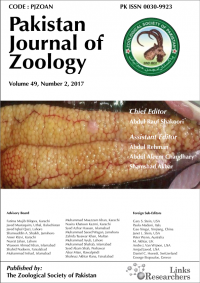Antimicrobial Activity of Some Medicinal Plants Extracts Against Food Industry Isolates
Antimicrobial Activity of Some Medicinal Plants Extracts Against Food Industry Isolates
Iram Liaqat1*, Najma Arshad2, Muhammad Arshad3, Safdar Ali Mirza4, Nazish Mazhar Ali1 and Ammara Shoukat1
ABSTRACT
Microbial contamination and biofilm formation in food industries pose a threat to human health worldwide. With the increased use of antibiotics in food industry, the problem of bacterial resistance is emerging, hence leading to serious health issues. Among 24 strains isolated from Shaukat Banaspati Ghee industry (Grw) and Shezan foods (pvt) Ltd, Lahore, Pakistan food industry, 10 highly antibiotic resistant strains were subjected to morphological, physiological and biochemical characterization. 16SrRNA sequencing was performed to identify three highly resistant strains at species level. Antimicrobial activity of aqueous and methanolic plant extracts of Camellia sinensis (Green tea), Syzygium aromaticum (Clove) and Mentha piperita (Peppermint) was evaluated against identified isolates. Agar well diffusion assay was used to monitor the antimicrobial activity of these strains both in mono culture and mixed culture. Streptomycin sulphate (10 μgml-1) and Amphotericin B (5 mgml-1) were used as positive controls. Minimum inhibitory concentration (MIC) and minimum bactericidal concentration (MBC) of plant extracts was also determined. Syzygium aromaticum was proven to have excellent antimicrobial activity against all tested microorganisms, while C. sinensis and M. piperita showed weak antimicrobial activity. Methanolic plant extracts exhibited greater antimicrobial activity than aqueous extracts. Maximum zone of inhibition exhibited by methanolic extracts of S. aromaticum was 10 mm and 20 mm in mono and mixed culture bacterial isolates, respectively. The findings from this study warrant further research to help to establish an alternative anti-infective phytotherapeutical approach to control antibiotic-resistant microbial strains in the food industry.
To share on other social networks, click on any share button. What are these?









